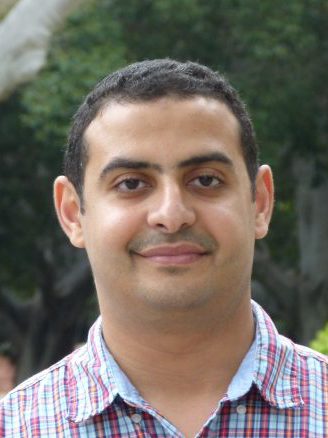November 08, 2019 – 11:15 AM
TSRB Auditorium

Yasser Shoukry
University of California, Irvine
Abstract
From simple logical constructs to complex deep neural network models, Artificial Intelligence (AI)-agents are increasingly controlling physical/mechanical systems. Self-driving cars, drones, and smart cities are just examples of such systems to name a few. However, regardless of the explosion in the use of AI within a multitude of cyber-physical systems (CPS) domains, the safety, and reliability of these AI-enabled CPS is still an understudied problem. Mathematically based techniques for the specification, development, and verification of software and hardware systems, also known as formal methods, hold the promise to provide appropriate rigorous analysis of the reliability and safety of AI-enabled CPS. In this talk, I will discuss our work on applying formal verification techniques to provide formal verification of the safety of autonomous vehicles controlled by end-to-end machine learning models and the synthesis of certifiable end-to-end neural network architectures.
Biography
Yasser Shoukry is an Assistant Professor in the Department of Electrical Engineering and Computer Science at the University of California, Irvine where he leads the Resilient Cyber-Physical Systems Lab. Before joining UCI, he spent two years as an assistant professor at the University of Maryland, College Park. He received his Ph.D. in Electrical Engineering from the University of California, Los Angeles in 2015. Between September 2015 and July 2017, Yasser was a joint postdoctoral researcher at UC Berkeley, UCLA, and UPenn. His current research focuses on the design and implementation of resilient cyber-physical systems and IoT. His work in this domain was recognized by the NSF CAREER Award, the Best Demo Award from the International Conference on Information Processing in Sensor Networks (IPSN) in 2017, the Best Paper Award from the International Conference on Cyber-Physical Systems (ICCPS) in 2016, and the Distinguished Dissertation Award from UCLA EE department in 2016. In 2015, he led the UCLA/Caltech/CMU team to win the NSF Early Career Investigators (NSF-ECI) research challenge. His team represented the NSF- ECI in the NIST Global Cities Technology Challenge, an initiative designed to advance the deployment of Internet of Things (IoT) technologies within a smart city. He is also the recipient of the 2019 George Corcoran Memorial Award for his contributions to teaching and educational leadership in the field of CPS and IoT.